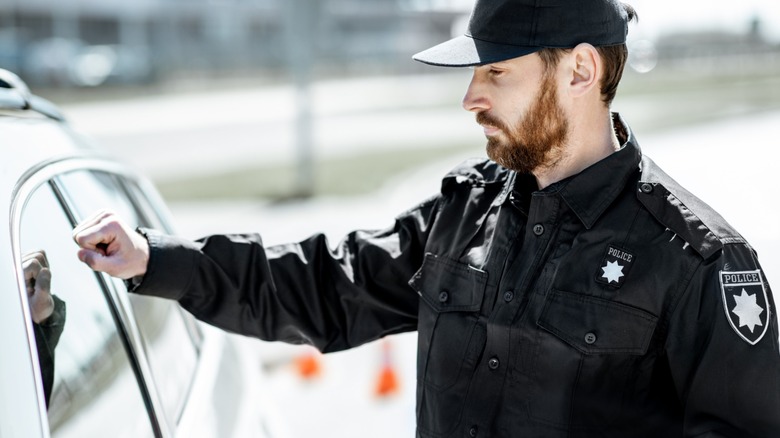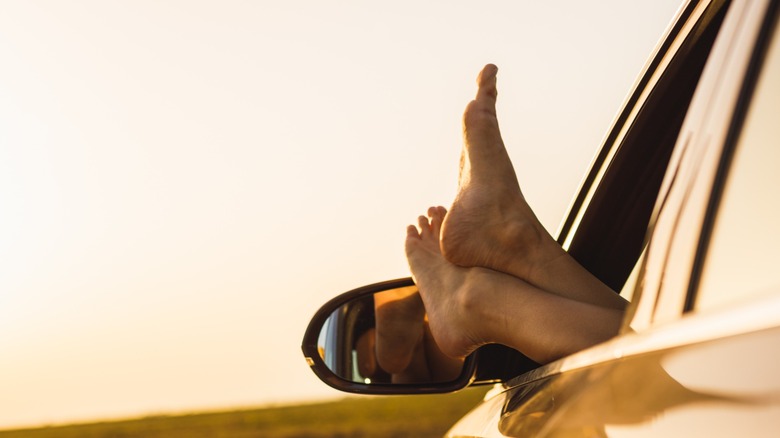
Florida House Bill 1365, which came into effect on October 1, 2024, officially prohibits any county from allowing overnight sleeping or camping in public areas. While there are exceptions in designated areas, the conditions allowing those exceptions are fairly strict. For instance, these designated areas must have security on site at all times, restrooms with running water, and access to mental health services. What's more, they must be certified by the Department of Children and Families and are subject to DCF inspections.
This law is intended to crack down on homeless encampments, but Florida doesn't make it any easier on anyone trying to find someplace to rest on the cheap such as Vanlifers, digital nomads, RVers, or tired drivers. Whole sections of the state, like the Florida Keys, have made it illegal to sleep in your car anywhere within their jurisdictions. It's also illegal to sleep on the shoulder of most state highways. Throughout the state as a whole, it is illegal to sleep in your car unless it is on private property where you have the owner's permission, or in a designated camping spot that allows it.
While Florida's new rules may seem extreme, it isn't the only state with laws against sleeping in a vehicle. Here are the U.S. states that are making it just abut impossible to sleep in a vehicle.
 RossHelen/Shutterstock
RossHelen/Shutterstock
Other localities in addition to Florida have laws against sleeping in one's vehicle. Several states impose time limits on how long one can park at a rest area. For instance, there are restrictions on overnight parking at rest areas in Florida, Georgia, North Carolina, South Carolina, Pennsylvania, and Tennessee. North Carolina limits your stay at these stops to four hours, while Tennessee is even stricter by enforcing a three hour limit. Pennsylvania goes even harder with a 2-hour limit. The state of New York prohibits sleeping in your car on public property in general.
Many cities and local municipalities also have laws and ordinances against sleeping in one's vehicle. For example, you can be charged with a Class 4 misdemeanor in Roanoke County, Virginia if you're caught snoozing in your car. It is illegal in Los Angeles or San Francisco to sleep in your car on public property. Multiple cities in Tennessee make it illegal to sleep in your vehicle on either private or public property. So, if you're planning a road trip, it's a good idea to check the local laws of the places you'll be travelling.
 Fotostorm/Getty Images
Fotostorm/Getty Images
There are some states — such as Arizona, Mississippi, Missouri, and Montana — where overnight parking is legal. Texas and Nevada allow staying in a spot for up to 24 hours. Wyoming allows resting in one's car for the purpose of driving safely, as long you stay in your vehicle.
There are still options in states that restrict sleeping in one's car. Truck stops, for example, generally allow overnight parking and can be a good option if you don't mind the noise. They also have amenities like showers and hot food. It's also a good idea not to park in spots designated specifically for trucks. There are also businesses like Walmart, Cracker Barrel, Culver's, Home Depot, Bass Pro Shop, Cabela's, some 24-hour gyms, and casinos that allow overnight parking, but you should call ahead or speak with a manager to confirm if it's OK.
You might also want to check out lands that are publicly managed by the federal government. These areas, like BLM lands or national forests, often offer dispersed, or free, camping. Usually, you are allowed to stay in one spot for up to two weeks at a time. Wherever your travels take you, it's a good idea to plan ahead if you want to sleep in your car. Find out what the local laws and ordinances are at both the state and local levels and always make sure with management or property owners that you have permission before sleeping on private property.
















